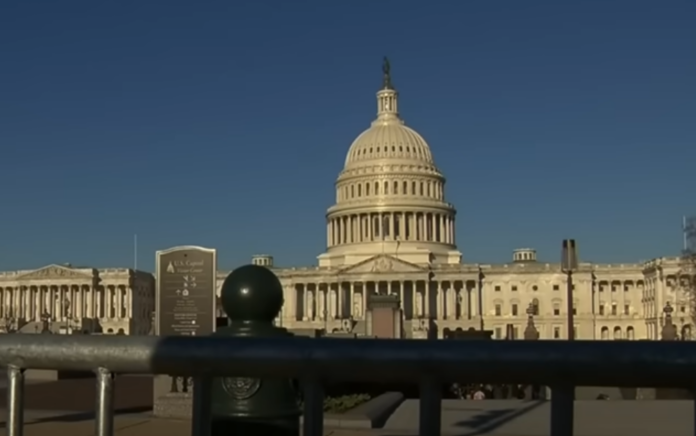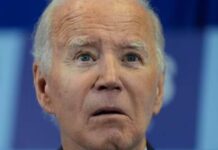
The Republicans barely hold a majority in the U.S. Senate. Any change will flip the script.
That’s why Washington, D.C. was stunned when a top U.S. Senator suddenly quit.
Marsha Blackburn Launches Bid for Tennessee Governor
Tennessee Republican Sen. Marsha Blackburn revealed her intention to run for governor on Wednesday, marking a significant shift in her political career. Since joining the U.S. Senate in January 2019, Blackburn has championed policies focused on boosting employment, expanding energy output, and reforming education by prioritizing parental authority over bureaucratic systems. She also emphasized a commitment to deporting undocumented immigrants while upholding constitutional values and the sanctity of life.
“I love Tennessee, I believe in Tennesseans,” Blackburn declared in her campaign launch video. “And I’m ready to deliver the kind of conservative leadership that will ensure our state is America’s conservative leader for this generation and the next. I’m Marsha Blackburn, I’m running for governor and I would be honored to have your support.”
Blackburn joins two other sitting senators in the race for gubernatorial seats ahead of the 2026 midterms, following announcements from Colorado Democrat Sen. Michael Bennet in April and Alabama Republican Sen. Tommy Tuberville in May. Should Blackburn secure the governorship, she would have the authority to appoint her Senate replacement, as her current term extends through 2031.
Her campaign website outlines a comprehensive agenda, detailing her positions on safeguarding women’s sports, curbing illegal immigration, addressing challenges posed by China, reinforcing parental rights, and advancing the policies championed by President Donald Trump.
Before her Senate tenure, Blackburn served in the Tennessee state Senate and later represented Tennessee’s 7th Congressional District in the U.S. House. In 2018, she made history as the first woman elected to the U.S. Senate from Tennessee, according to her campaign website.
Importance of the 2026 Midterms for the Trump Administration
The 2026 midterm elections will play a pivotal role in determining the success of President Donald Trump’s second-term agenda, as control of Congress will directly influence his ability to enact key legislative priorities. With Republicans aiming to maintain or expand their influence in the House and Senate, the outcome of these elections will shape the administration’s capacity to address issues like immigration reform, economic policy, and energy independence.
In the Senate, the 2026 midterms will see 33 seats up for election, with a significant number held by Democrats in competitive states. Republicans currently hold a slim majority, but maintaining or growing this edge is critical for Trump to advance his legislative goals without facing prolonged gridlock. A stronger Senate majority would enable smoother passage of bills on tax cuts, deregulation, and border security, which are central to Trump’s platform.
The House of Representatives, where all 435 seats are contested every two years, will be equally crucial. Republicans secured a majority in the 2024 elections, but the 2026 midterms will test their ability to retain control amid shifting voter priorities. A Republican-led House would facilitate the passage of Trump’s budget proposals and infrastructure initiatives, while a Democratic flip could stall his agenda entirely.
Historical trends suggest midterms often serve as a referendum on the sitting president, with the incumbent’s party typically losing seats. For Trump, whose polarizing leadership style galvanizes both supporters and opponents, the stakes are high. His administration’s ability to rally voter turnout will be essential to counter potential backlash and secure favorable congressional majorities.
Key policy battles, such as immigration enforcement and energy policy, hinge on Republican control of Congress. Trump’s plans for mass deportation and expanded domestic energy production require legislative backing to allocate funding and overcome legal challenges. Without a cooperative Congress, these initiatives risk being diluted or blocked by opposition-led committees.
The departure of prominent senators like Marsha Blackburn to pursue gubernatorial races adds another layer of complexity. If elected governor, Blackburn’s Senate seat would need a replacement, potentially affecting the chamber’s balance of power. Similar transitions in other states could reshape the Senate’s composition, making the 2026 elections a critical juncture for Trump’s influence.
Voter sentiment in battleground states will also play a decisive role. Economic concerns, crime, and cultural issues are likely to dominate campaigns, with Republicans leveraging Trump’s messaging on restoring American prosperity. Democrats, meanwhile, are expected to focus on countering Trump’s policies by emphasizing social justice and environmental priorities, setting the stage for a deeply contested election cycle.
Redistricting will further complicate the electoral landscape. Following the 2020 census, several states redrew congressional maps, some of which favor Republicans due to gerrymandering. However, legal challenges to these maps could alter competitive districts, impacting House control and, by extension, Trump’s legislative prospects.
The Trump administration’s foreign policy goals, including trade negotiations and national security measures, also depend on congressional support. A Republican-controlled Senate would streamline the confirmation of key appointees, such as ambassadors and defense officials, while a divided Congress could delay or derail these nominations, hampering Trump’s global agenda.


















